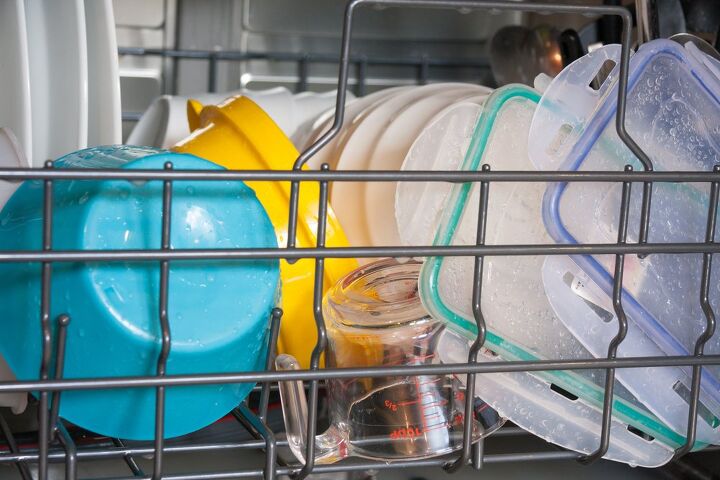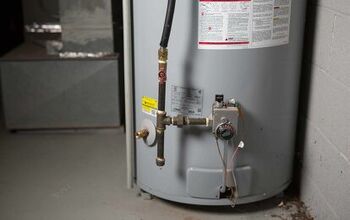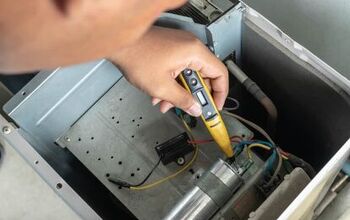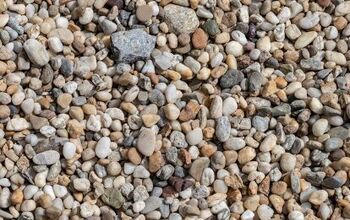What To Do If Plastic Melts In The Dishwasher (Here's What You Can Do)

A dishwasher is a very useful appliance, and this is why they’re found in most homes these days. But they aren’t without problems, and one common one has to do with washing plastic in the dishwasher.
If you’re washing a plastic lid, for example, it could fall to the bottom of the dishwasher, where it’ll be within very close range of the heating coils and likely melt. When this happens, you’re not only going to have a ruined piece of plastic and a mess on your hands, but the smell will also be bad.
And if you don’t address the problem right away, every time you turn the dishwasher on, you’ll be reminded of what happened. This article will explain what you should do when plastic melts in your dishwasher.
If you smell burning plastic and you discover it’s coming from the dishwasher, you must first shut off the system and then let the plastic and heating coils cool. Once they’re cool, you must freeze the plastic to make it easier to remove. Once the large pieces are gone, remove the remaining melted plastic with nail polish remover.
Do You Need Appliance Repair Services?
Get free, zero-commitment quotes from pro contractors near you.

Addressing Melted Plastic in a Dishwasher
If plastic has melted in your dishwasher, this is what you should do. First, disconnect the dishwasher from the outlet, and this will probably be located under your sink or behind a cabinet. If you can’t locate the cord, then the next best option is cutting off power via the breaker box.
Remove all dishes from the dishwasher and then leave the door open for several minutes so the coils and melted plastic can cool. You definitely should not touch the heating coils or attempt to remove the plastic while everything is still hot.
Next, you’ll need to get a plastic bag and fill it with ice. Place the ice bag on the plastic for about 30 minutes, as this will freeze the plastic and make removal easier. When 30 minutes has gone by, remove the ice from the plastic and then attempt to scrape it away.
If you can’t pull it away, use a paint scraper or another non-metal tool such as a wooden spoon. Once the plastic starts coming off, you’ll want to make sure it’s removed from the dishwasher entirely.
Removing Plastic From the Coils
While scraping, you’ll want to make sure you don’t damage the coils. You can also soak a cloth in nail polish remover and then place it on the dishwasher coils. If you leave this there for about five minutes, the acetone will dissolve any remaining plastic and you can get this residue off the coils. Keep in mind though that you don’t want to pour the acetone directly on the coils.
Once the plastic has been removed from the coils, you should wipe the coils with a clean, damp cloth. You’ll do this to make sure that all the bits of plastic are gone. The next thing you should do is mix some dish soap with warm water.
Once you apply the cloth to the heating coils, you’ll remove all the nail polish and any remaining residue. The last step is rinsing the coils off with clean water, and then you just need to plug the dishwasher back in.
What You’ll Need to Execute Plastic Removal Properly
You’ll need these items to effectively remove plastic from a dishwasher. While you can swap out cloths for paper towels, it’s best to use a cotton cloth, as this has more scrubbing power. You can also choose which kind of nail polish remover and dish soap is best for you. These items are only suggestions, so customize accordingly:
- Plastic bag
- Ice cubes
- Plastic scraper
- Cloths
- Nail polish remover
- Dish soap
Does a Burning Smell Coming From the Dishwasher Warrant Concern?
If you smell burning plastic and the smell is emanating from the dishwasher, you should address this problem right away. The burning plastic could spark a fire within your dishwasher, and this seems unlikely because the dishwasher is filled with liquid. But one must keep in mind that the dishwasher is an electric appliance, and if an electrical fire starts, then it’ll be a significant problem.
Furthermore, if the burning smell emanates throughout your home, you may start coughing, feel shortness of breath, or experience general discomfort, and these feelings may not go away until your home is properly fumigated.
If you believe that the burning plastic in your dishwasher is on fire and you don’t know what to do about it, then you should get in touch with professionals, as they can address this problem for you.
Or—and this is probably the better option—you should get in touch with the local fire brigade. They’ll come to your home and make sure that the burning plastic doesn’t spark a larger fire, and after they’re through you can have a specialist clean your dishwasher for you.
Do You Need Appliance Repair Services?
Get free, zero-commitment quotes from pro contractors near you.

Can Plastic Generally Withstand the Heat of a Dishwasher?
In general, a dishwasher shouldn’t melt plastic, but in some instances, plastic will fall into a spot it’s not supposed to. When this happens, it may be exposed to the heating coils or the heating element. Most dishwashers are designed to reach about 170°F, but most plastic lids and containers can withstand this kind of heat.
If your plastic has a heat limit, you should know what this is before you put it in the dishwasher. You don’t want to put in something that can melt, especially if you can avoid doing so. You’ll also want to be careful when putting thin or flimsy plastic in the dishwasher.
Even if flimsy plastic says it’s heat-resistant, you should avoid putting this in the dishwasher. The plastic may not burn, but it may melt or warp, and in either case, it’ll be useless after.
You don’t want to keep losing valuable containers to your dishwasher. After all, the dishwasher is supposed to be providing a good service—it’s not supposed to be damaging your items. The best way to avoid burning plastic is to keep it out of the dishwasher!

Matt loves everything DIY. He has been learning and practicing different trades since he was a kid, and he's often the first one called when a friend or family member needs a helping hand at home. Matt loves to work with wood and stone, and landscaping is by far his most favorite pastime.
More by Matthew Mountain



























